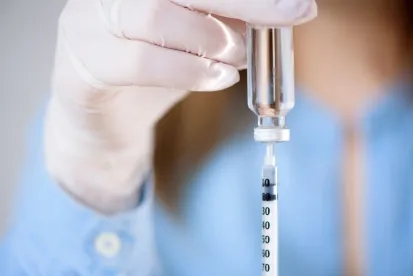Pharmacies have long been a focus of enforcement actions brought by the Department of Justice (DOJ) and Department of Health and Human Services Office of Inspector General (OIG). This summer has been no exception, with DOJ and OIG bringing a number of fraud cases against pharmacies and pharmacists. Although many enforcement actions under the False Claims Act (FCA) continue to focus on illegal kickback arrangements, this summer we observed substantial developments in the enforcement landscape concerning Controlled Substances Act (CSA) prosecutions. We also saw enforcement actions brought against pharmacies for allegedly falsifying prior authorization information and providing more insulin than the pharmacy billed to payors.
PillPack Insulin Overdispensing Settlement
The summer began with online retail pharmacy PillPack, LLC (an Amazon.com subsidiary) reaching a civil settlement to resolve fraud allegations regarding the under-reporting of days-of-supply of insulin pens that led to fraudulent billing of government healthcare programs. Through the agreement, PillPack agreed to pay approximately $5.79M to the government and certain states that were allegedly overbilled for insulin.
According to the Stipulation of Settlement, PillPack fraudulently reported lower days-of-supplies of insulin than it was actually dispensing to patients. This alleged underreporting often led to PillPack pharmacists dispensing insulin pen refills to patients earlier than was necessary based on their current prescriptions. In addition to government healthcare programs approving of and paying for claims they would not have otherwise approved if PillPack had reported the days-of-supply based on the standard pharmacy billing formula used by government programs, patients allegedly received multiple extra pens they did not need based on their prescriptions.
Falsifying Prior Authorizations and Waiver of Copayments
In July, Solera Specialty Pharmacy entered into a deferred prosecution agreement and paid $1.3M in civil penalties to resolve allegations that it submitted false claims for Evzio, an anti-overdose drug manufactured by kaléo Inc. (kaléo). Solera admitted to falsifying clinical information on prior authorization forms and signing the prior authorization forms in the place of the prescribing physicians. The pharmacy also waived Medicare copayments without determining whether the patient had a financial hardship.
Interestingly, this settlement comes eight months after kaléo paid $12.7M to resolve FCA allegations arising from the same FCA claims as Solera. Specifically, as discussed in our Health Care Enforcement Year In Review & 2022 Outlook report, the government alleged that kaléo directed doctors to send Evzio prescriptions to certain preferred pharmacies that in turn (1) submitted false prior authorization requests for Evzio; and (2) dispensed Evzio without collecting or attempting to collect co-payments from government beneficiaries.
Illegal Kickback Schemes
DOJ continued to prosecute illegal kickback schemes carried out by pharmacies, prescribers and manufacturers. In August, Dunn Meadow LLC (Dunn Meadow), a New Jersey pharmacy, pleaded guilty to a one-count information for illegally distributing prescription fentanyl and providing kickbacks to healthcare providers. In addition to the guilty plea, Dunn Meadow (and its parent Allegheny Pharma LLC), entered into a civil settlement resolving FCA and CSA liability, with a revenue-based contingent payment which could be as high as $50 million. The charged conduct giving rise to criminal and civil liability involved Dunn Meadow’s receipt of remuneration from at least one pharmaceutical manufacturer in the form of payments for “shipping fees,” although the pharmacy routinely shipped medications without manufacturer payment. Dunn Meadow also provided meals and entertainment to prescribers and pharmaceutical sales representatives.
Conclusion
While enforcement of kickback and CSA violations against pharmacies and pharmacists is common, the Pillback and Solera pharmacy cases in particular, indicate that the government and whistleblowers are identifying and prosecuting more sophisticated fraudulent arrangements. We note, for example, that prior authorization assistance is common among specialty pharmacies, but the DOJ and OIG have started to draw line on where it becomes a FCA or AKS violation. Similarly, Pillpack’s conduct arguably benefited beneficiaries, as they received more insulin than reported to the government; however, the government was clear that causing government programs to pay for extra (and potentially unnecessary) insulin pens violated the FCA.



 />i
/>i
